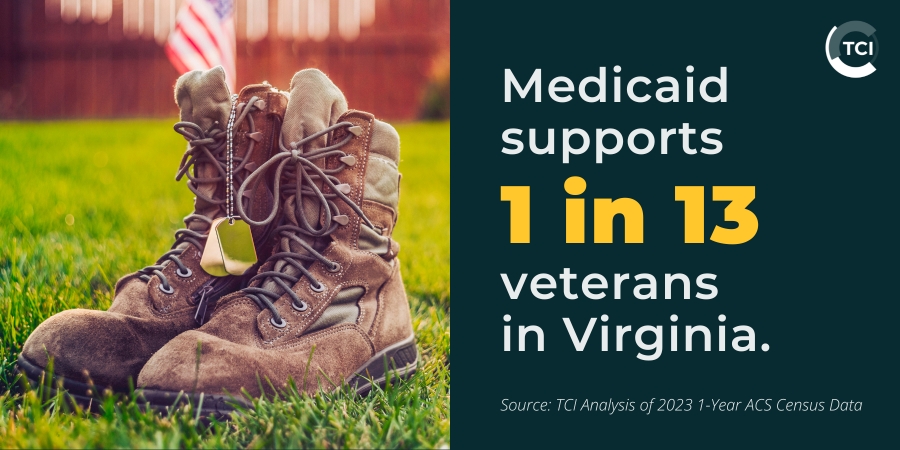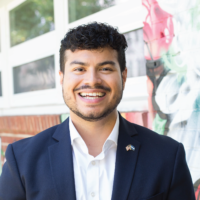April 17, 2025
Federal Medicaid Cuts Would Especially Harm Virginia Military Members, Veterans, New Parents, and People in Rural Areas
No one should have to choose between their health and keeping the lights on. That’s why Medicaid/CHIP plays a critical role across the commonwealth, providing nearly 2 million people in Virginia with access to quality health care. Unfortunately, the U.S. House and Senate have passed a budget blueprint that could lead to massive cuts to such programs as Medicaid and Medicaid expansion, while providing massive tax handouts to corporations and the wealthiest in the nation. Congress will return from recess at the end of the month to work out budget details and must reject cuts to programs like Medicaid that help to strengthen Virginia families.
The U.S. House budget framework directs the House Energy & Commerce Committee to cut up to $880 billion in spending. This directive can only be accomplished if major cuts are made to Medicaid, according to the Congressional Budget Office. The proposals to cut funding are taking many different forms, such as slashing federal funding, implementing burdensome work reporting requirements, or cutting benefits, but they would all have the same impact: Each would put up barriers to accessing health care, cause widespread coverage loss, and harm our communities.
Over 1 in 5 people in Virginia (nearly 2 million residents) access health care through Medicaid/CHIP, including 1 in 3 people (35%) who have just given birth and their newborns. Over 137,000 people who are supported by Medicaid have a disability or blindness, and nearly 93,000 are people aged 65 and older. Medicaid plays an especially critical role in small towns and rural areas in Virginia. Higher shares of children and adults under 65 in rural areas use Medicaid compared to metro areas.
Medicaid serves as a critical safety net for active-duty military members, veterans, and their families, according to a recent report from Georgetown University’s McCourt School of Public Policy. While the federal government provides primary health coverage to active-duty military, some veterans, and their families through TRICARE, Medicaid covers services that TRICARE does not. It is especially helpful in meeting the needs of children who require specialized health care, including home and community-based services.
Nationally, an estimated 850,000 people are dual-enrolled in TRICARE and Medicaid. TCI estimates over 56,000 individuals, including active-duty members, some veterans, and their families, are dually enrolled in both TRICARE and Medicaid in Virginia. Roughly 15,500 veterans alone are dual-enrolled in TRICARE and Medicaid in Virginia.

Medicaid also provides a critical source of health coverage for military veterans, regardless of TRICARE enrollment. TCI estimates that Medicaid provides coverage for nearly 1 out of 13 (or 47,155) veterans in Virginia. These individuals may be adults working low-wage jobs, caring for a loved one at home, or in between jobs, just like hundreds of thousands of individuals in Virginia who access coverage through Medicaid and Medicaid expansion. Any cuts to Medicaid or Medicaid expansion could have devastating, and potentially abrupt, impacts on the commonwealth’s service members, veterans, and their families.
Federal spending choices play a critical role in funding the building blocks of our communities, including access to health care. The budget framework that will guide ongoing conversations at the federal level attempts to hand a massive tax cut to the ultra-wealthy and corporations at the expense of everyday families by slashing health care and other critical programs, like food assistance. Congress must reject these damaging cuts and put Virginia families ahead of tax cuts for the ultra-wealthy.
